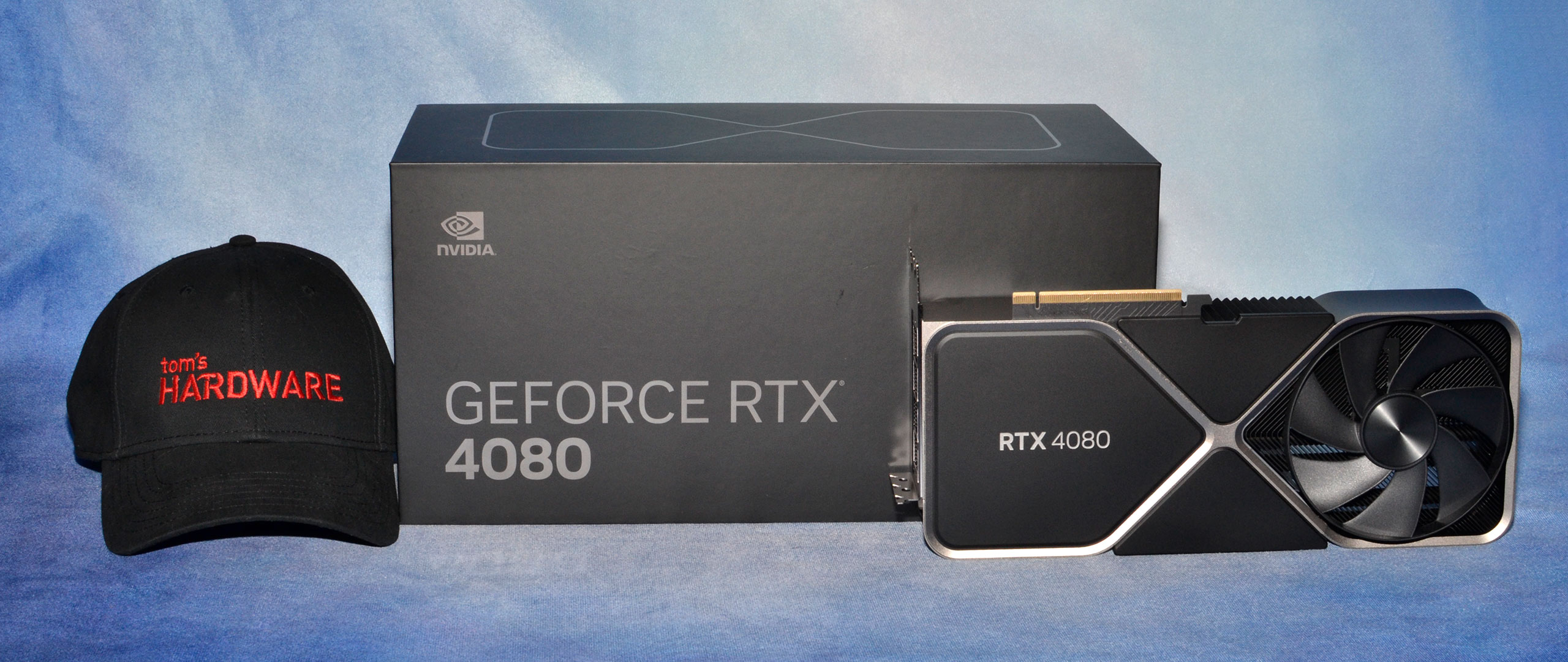Why you can trust Tom's Hardware
Given the price, we'll start with the performance that matters most: 4K at maxed-out settings. Some might argue that the xx80-class of Nvidia cards fit better with 1440p gaming monitors, but that's only true when they don't cost $1,200 or more.
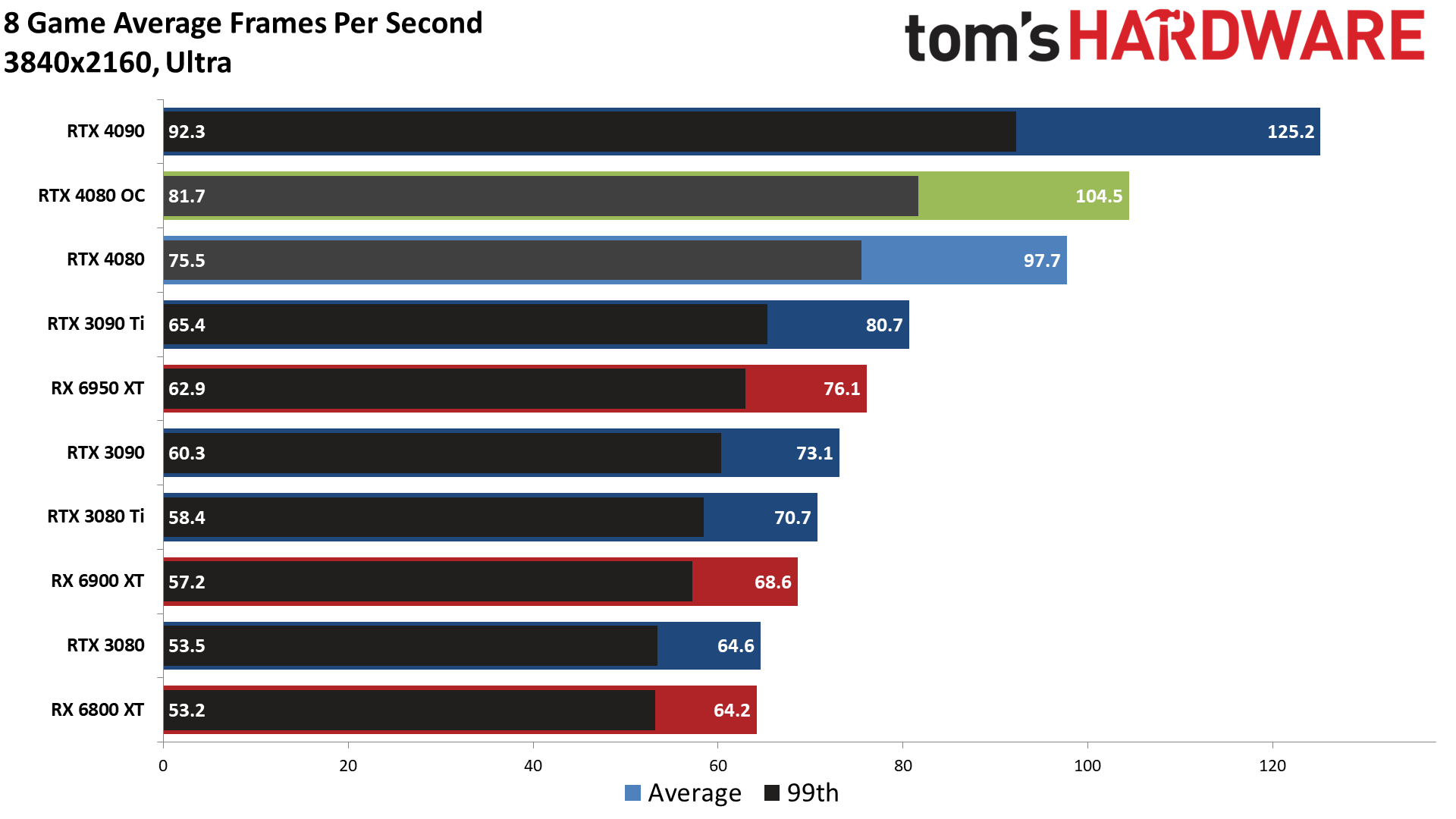
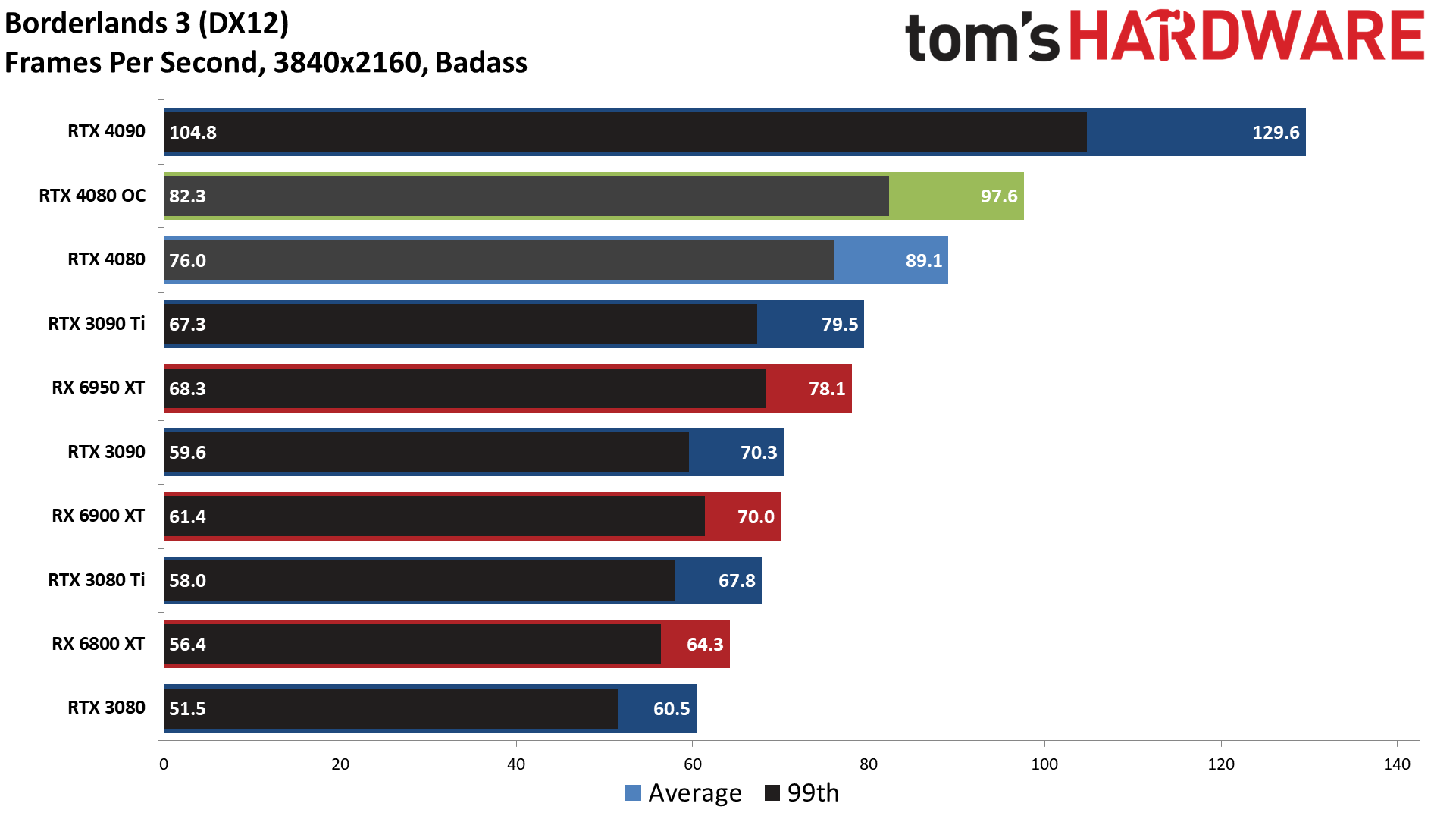
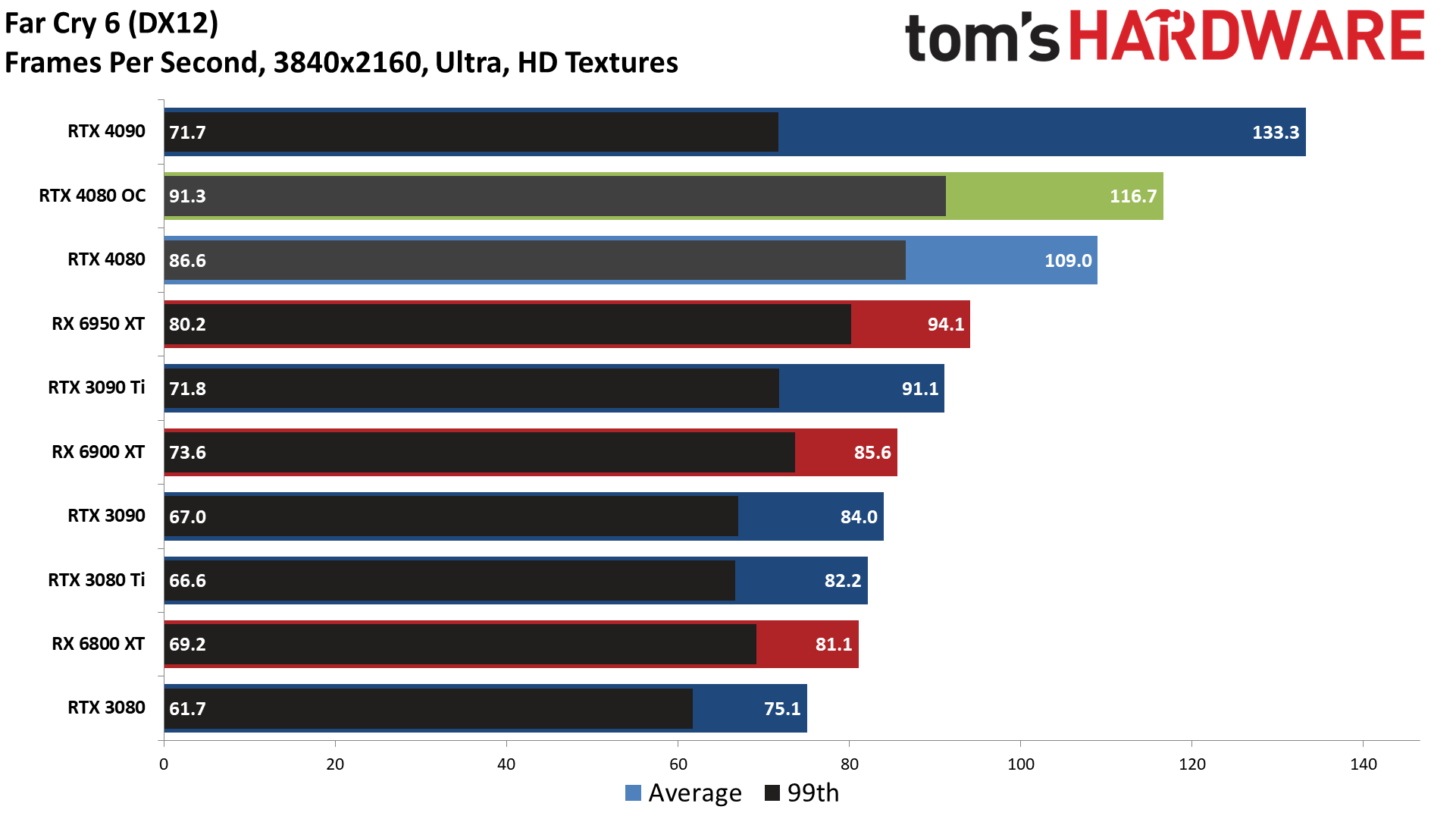
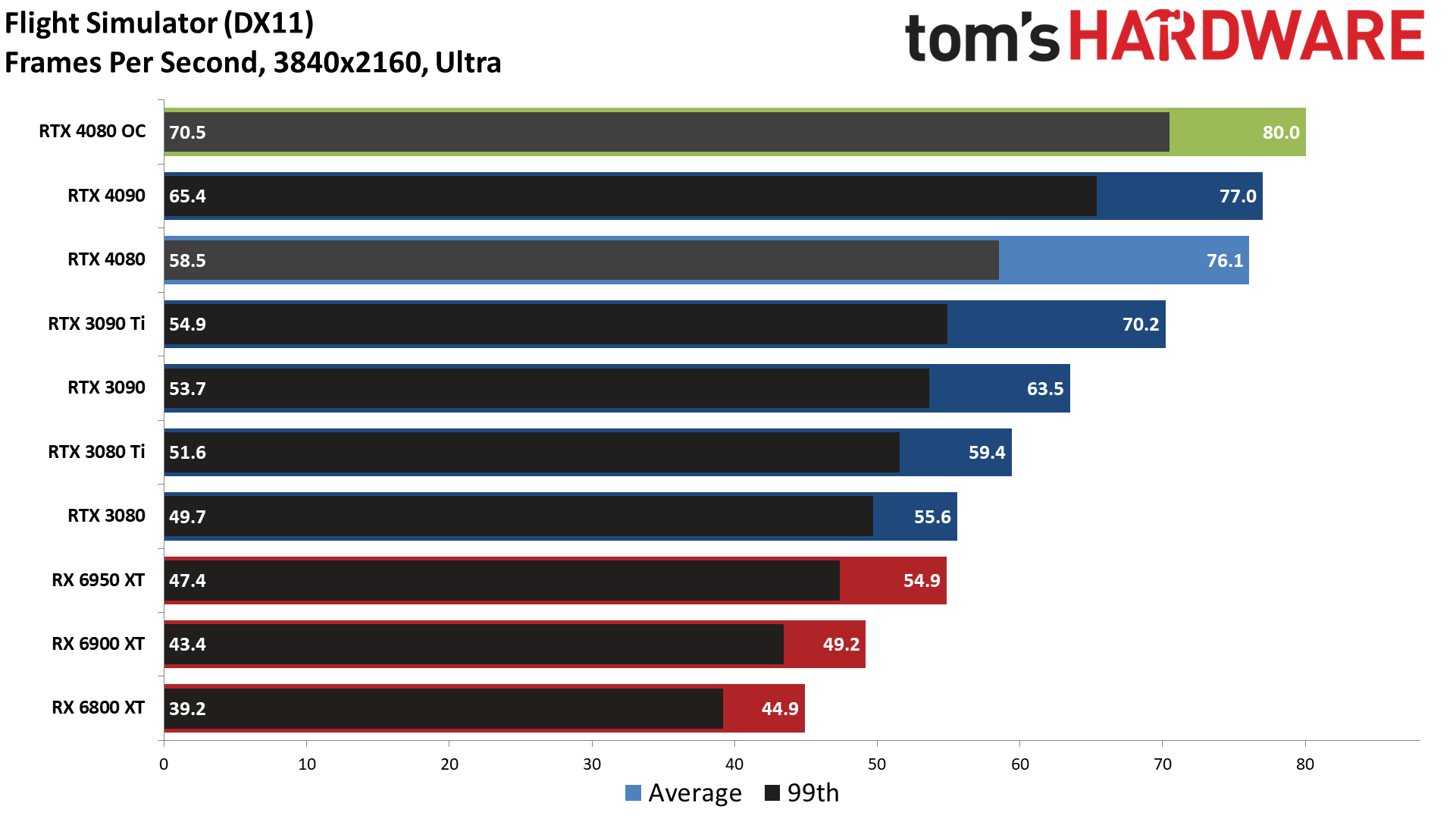
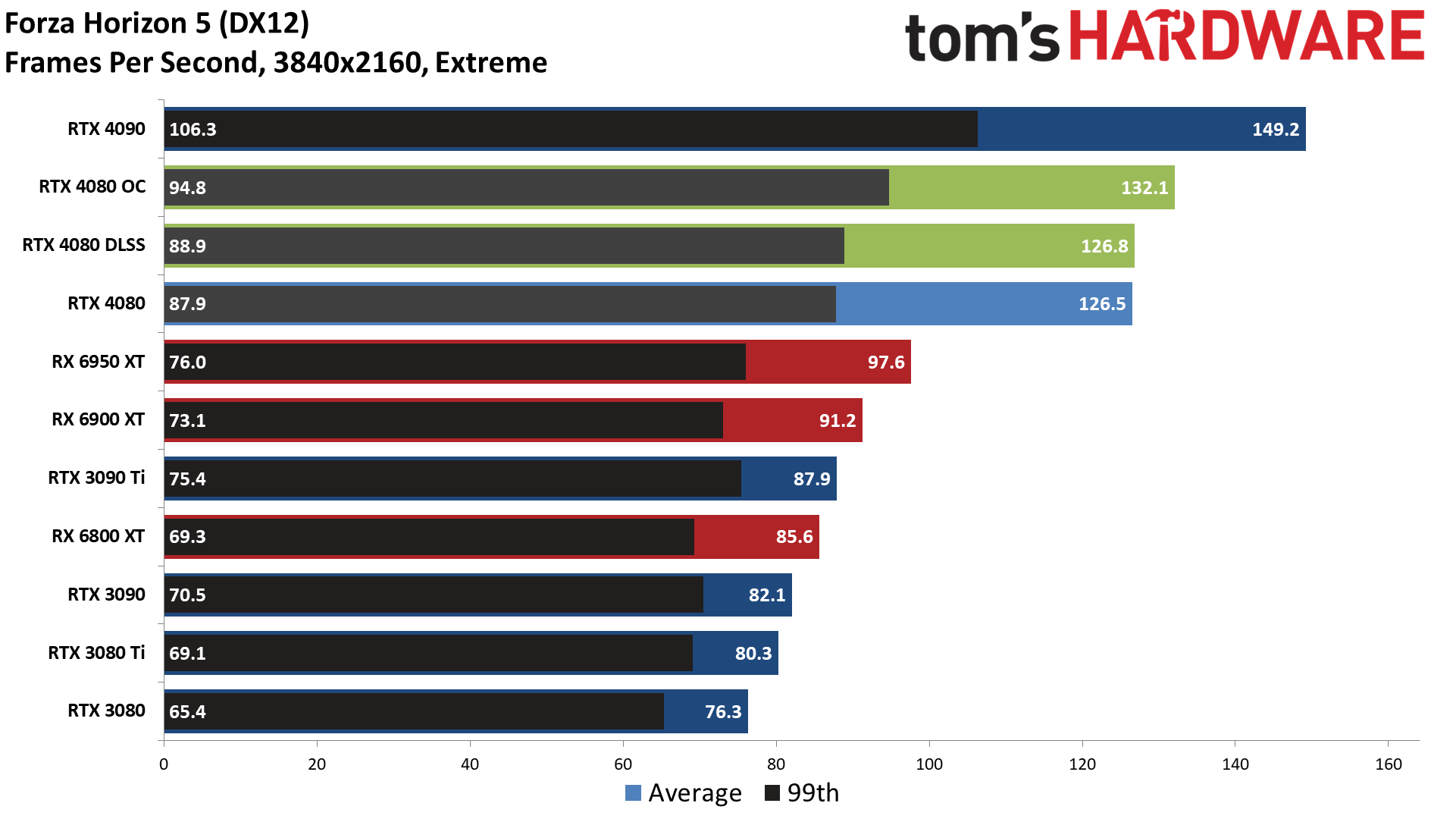
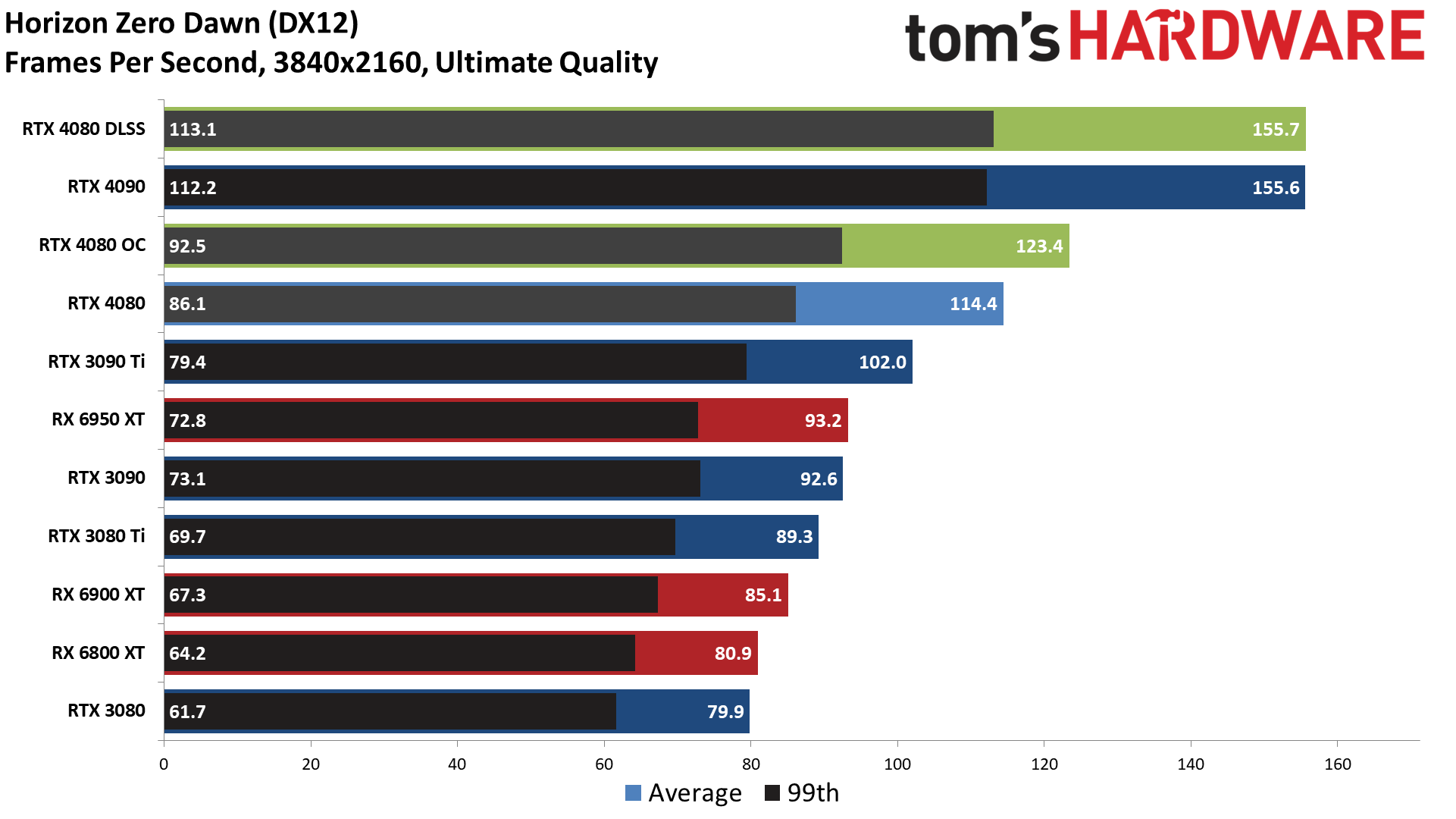
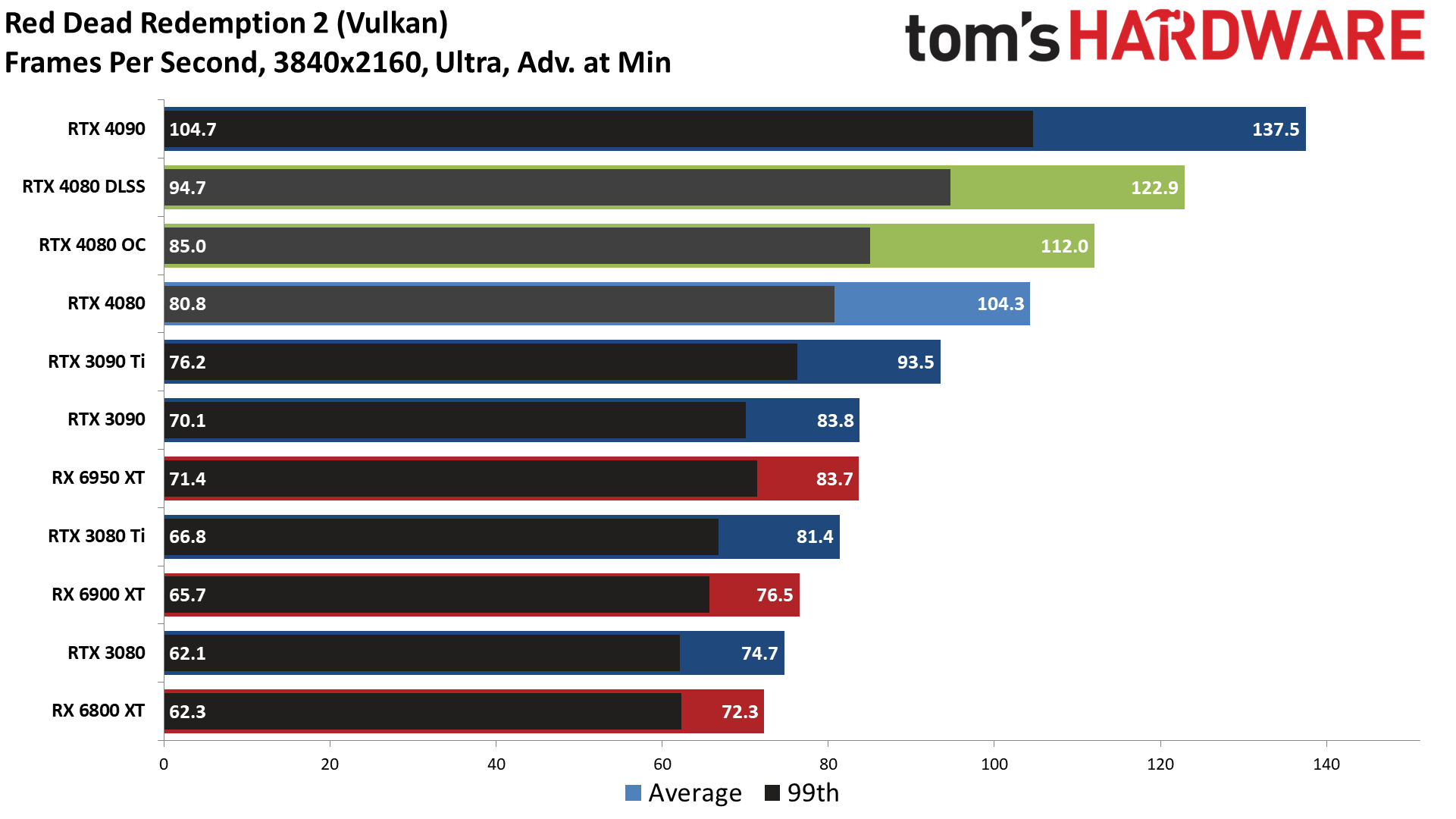
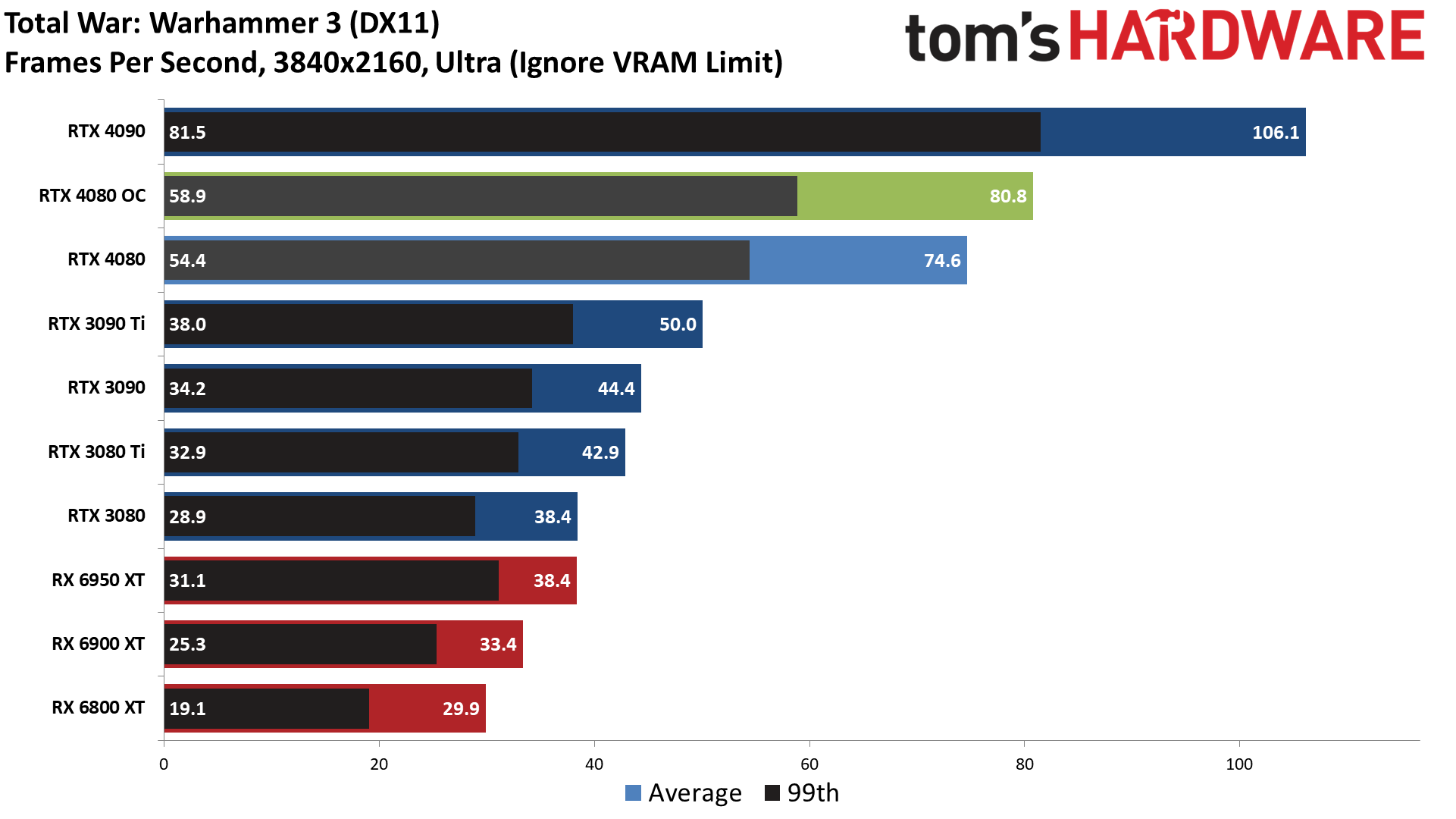
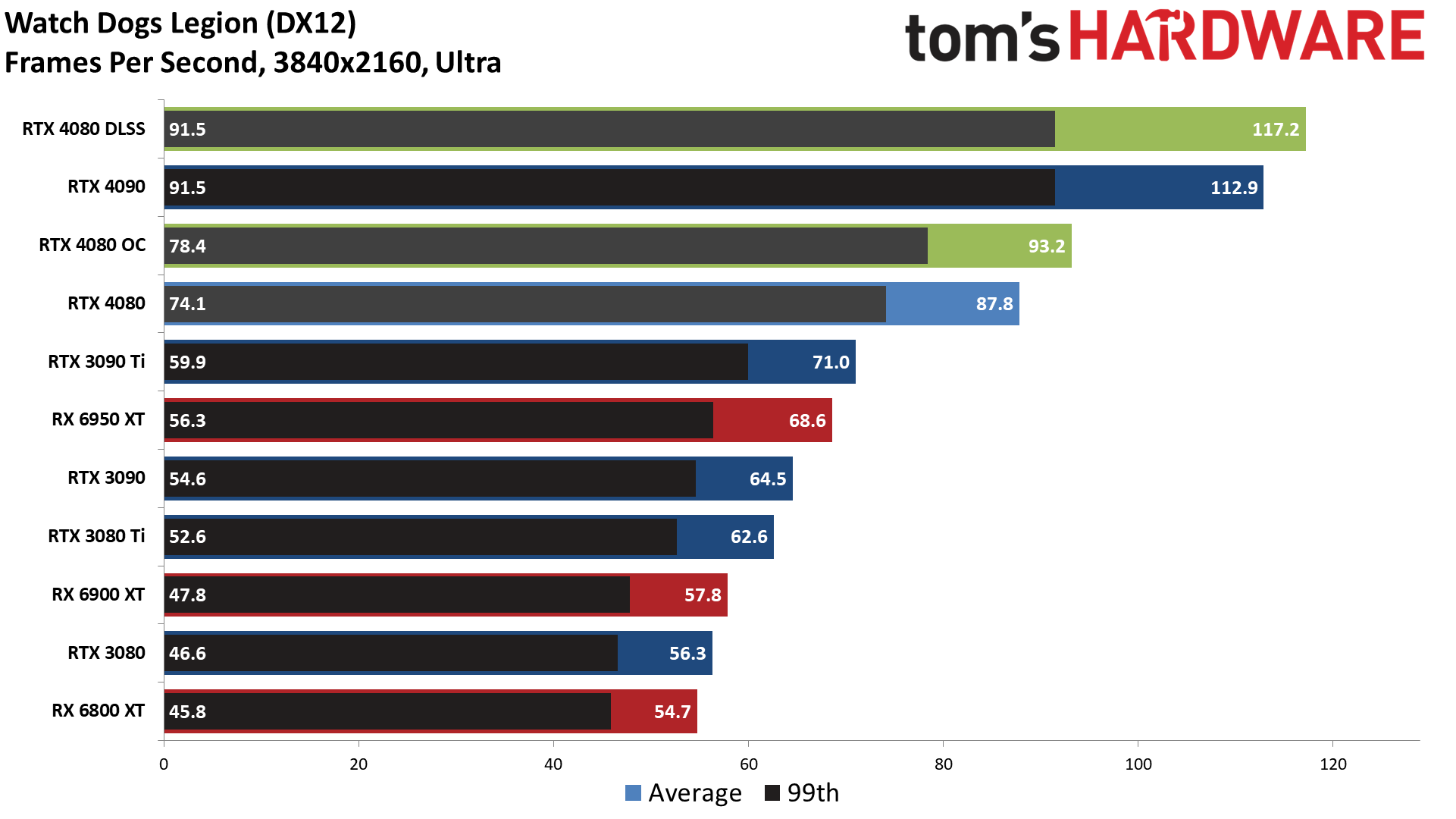
There are several ways of looking at performance. The RTX 4080 delivers 78% of the performance of the RTX 4090 for 75% of the price. Alternatively, it's 21% faster than the previous generation RTX 3090 Ti and 51% faster than the RTX 3080. Except it's more of a replacement for the RTX 3080 Ti, in which case it's only 38% faster than the card it replaces.
As for AMD's previous generation cards, the RTX 4080 beats the RX 6950 XT by just 29% in our standard gaming suite. However, if AMD's claims of 50% to 70% more performance from the RX 7900 XTX prove true, the RTX 4080 could be in a lot of trouble next month.
The gains are decent overall, but after the RTX 4090 review, they don't feel particularly amazing. Remember, the 4090 beat the previous generation 3090 Ti by 56% and the RTX 3090 by 72%, and the price was roughly in the same ballpark. RTX 4080 improves gen-on-gen performance, regardless of which Ampere card you care to compare it against, but the improvement is more like what we've seen with previous generations of hardware, and the price is generally much higher.
For example, the RTX 3080 10GB was 35% faster than the RTX 2080 Ti, and it was priced $500 lower. This time, the RTX 4080 is 51% faster than the 3080 10GB, but it costs $500 more. That's a 71% increase in generational pricing, unless you're willing to pretend the 3080 didn't exist and focus only on the 3080 Ti.
Some games are still bumping into CPU bottlenecks, so it's also useful to look at the best-case and worst-case results. The biggest improvement we measured relative to the 3090 Ti was 49% (Total War: Warhammer 3), but some of that likely comes from the newer drivers. Forza Horizon 5 also improved by over 40%. But several games show less than a 20% improvement, and Flight Simulator was in the single-digit percentage points at 8%.
As for overclocking, considering we're bumping into CPU bottlenecks with the Core i9-12900K, it's no surprise that the boosted GPU and memory clocks don't help very much. We measured an average performance improvement of 6.9% across our standard suite, ranging from 4.4% (Forza) to 9.6% (Borderlands).
DLSS 2 Quality mode also improved performance by 18% in Red Dead Redemption 2 and around 35% in Horizon Zero Dawn and Watch Dogs Legion. Flight Simulator and Forza Horizon 5 both have DLSS 2 support now as well… but performance remained unchanged in our testing. It's potentially a bug in the DLSS implementation of Forza, while Flight Simulator is still fully CPU limited — which is where DLSS 3 comes into play.
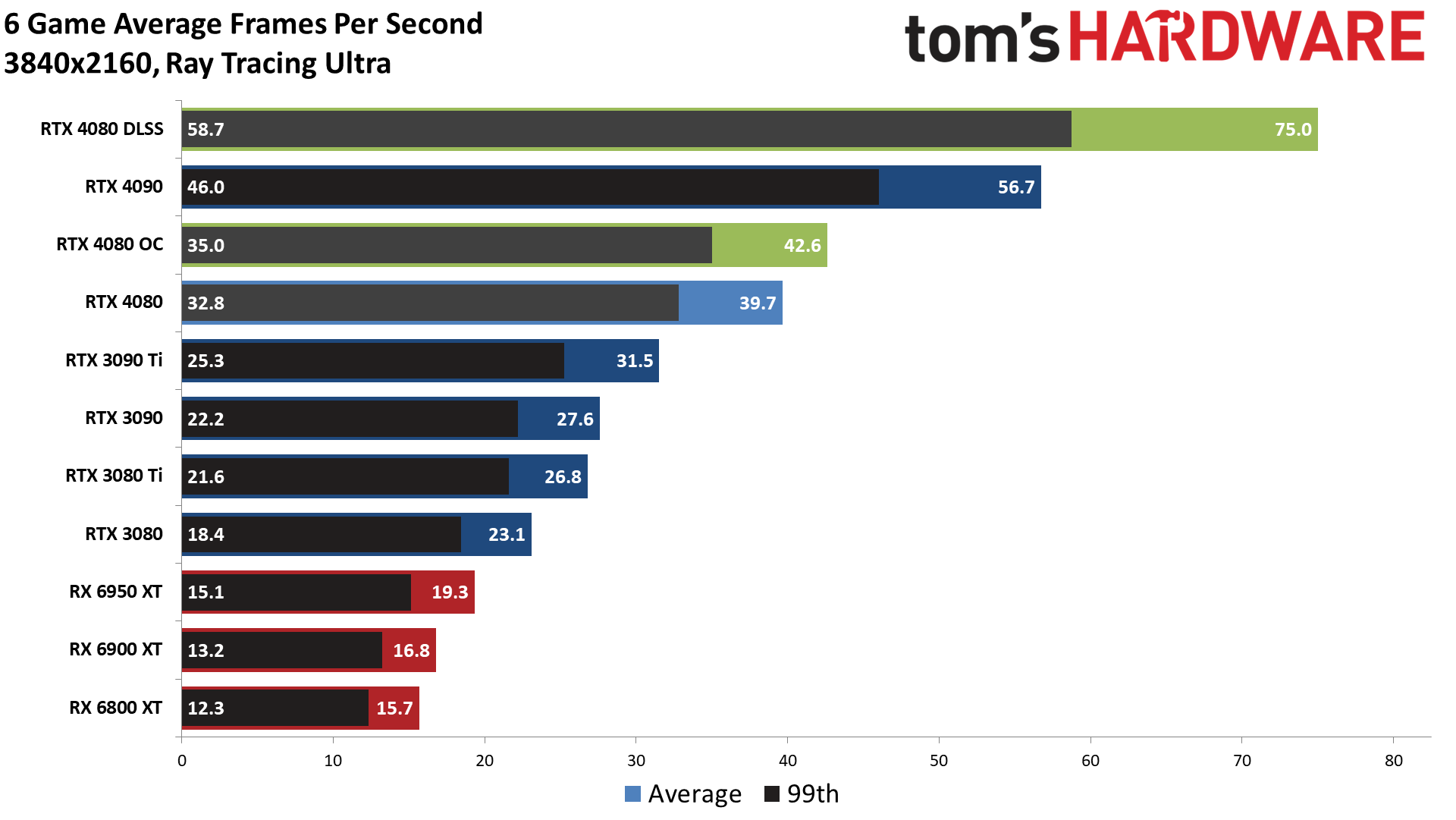
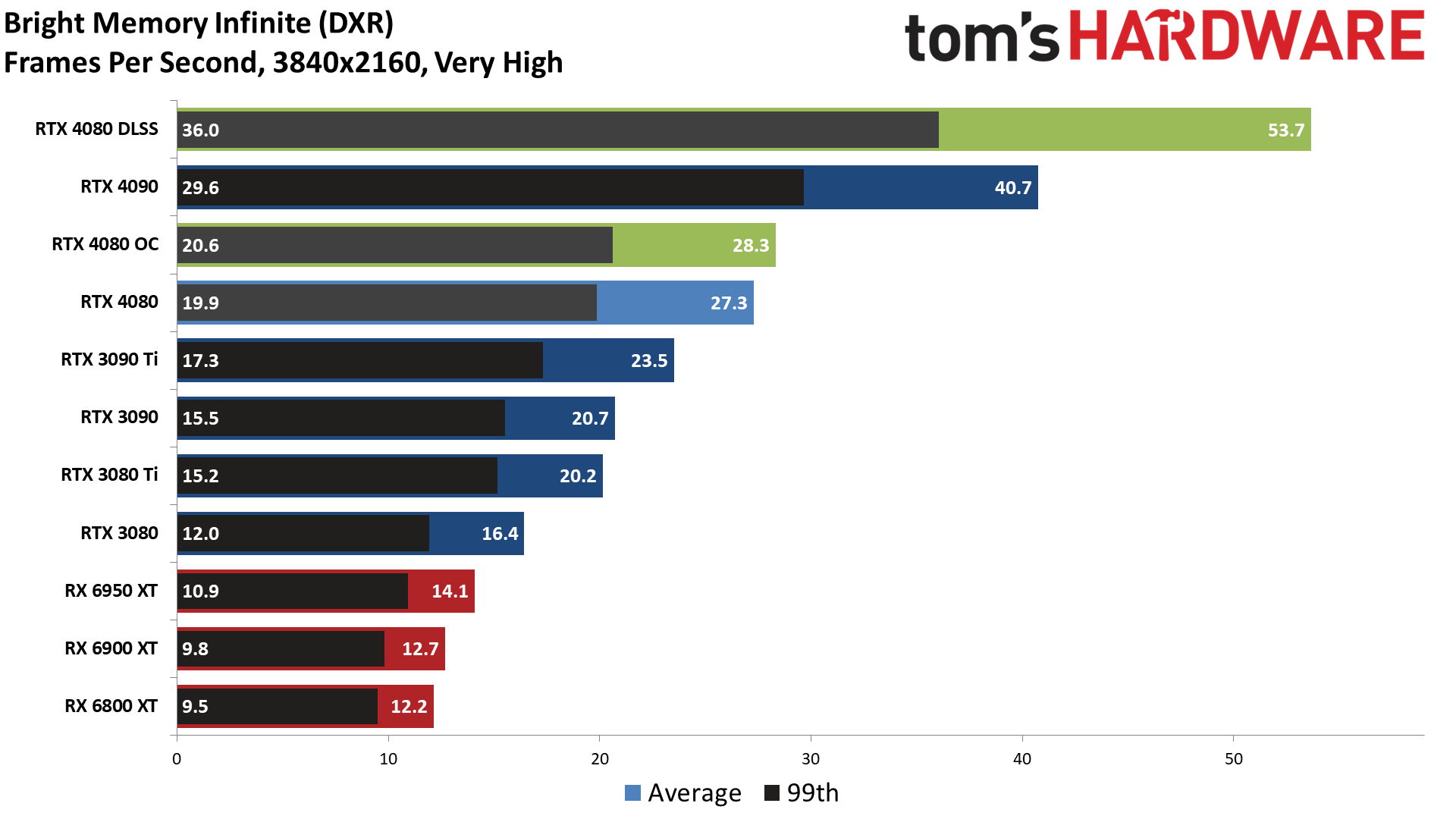
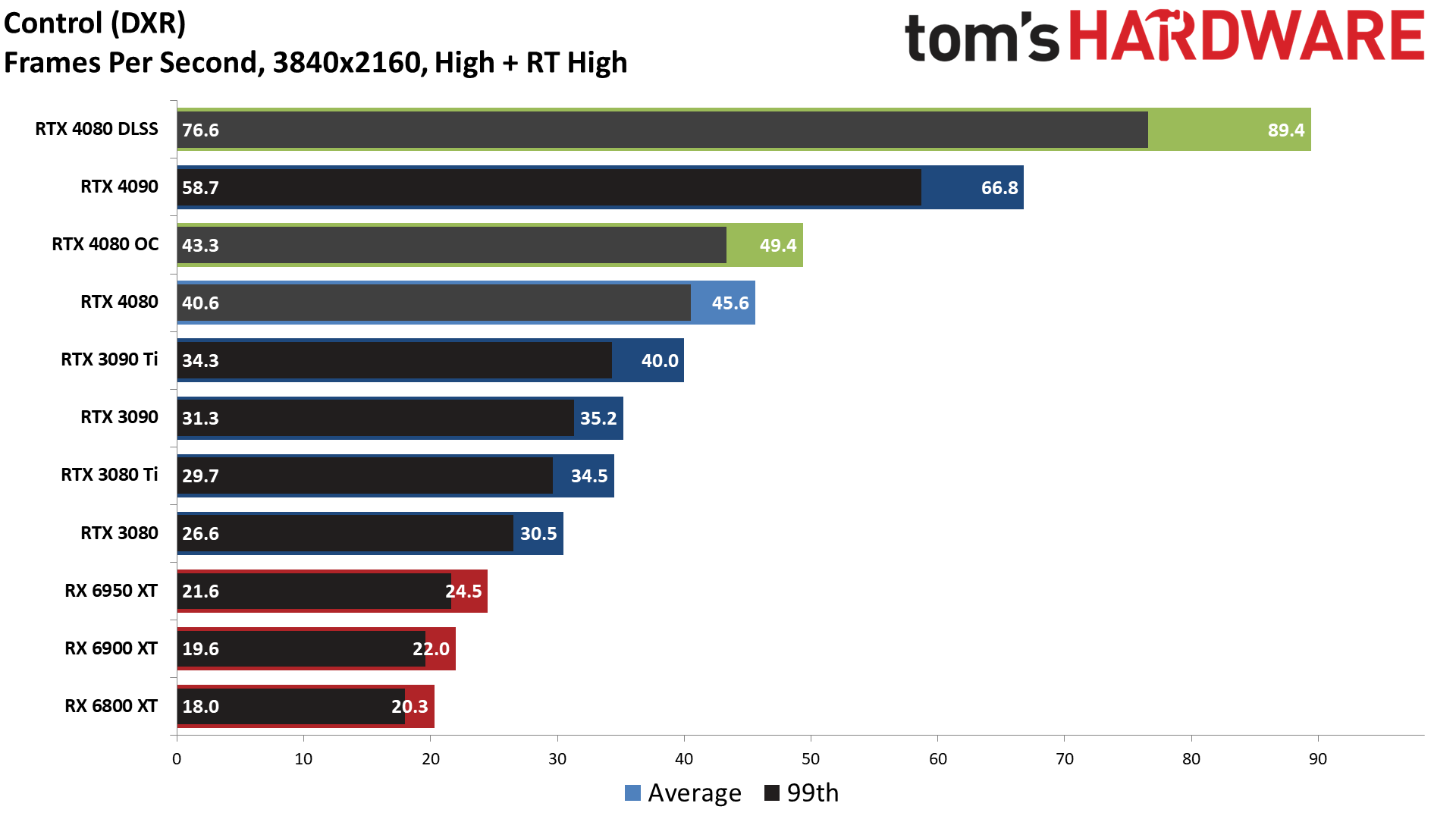
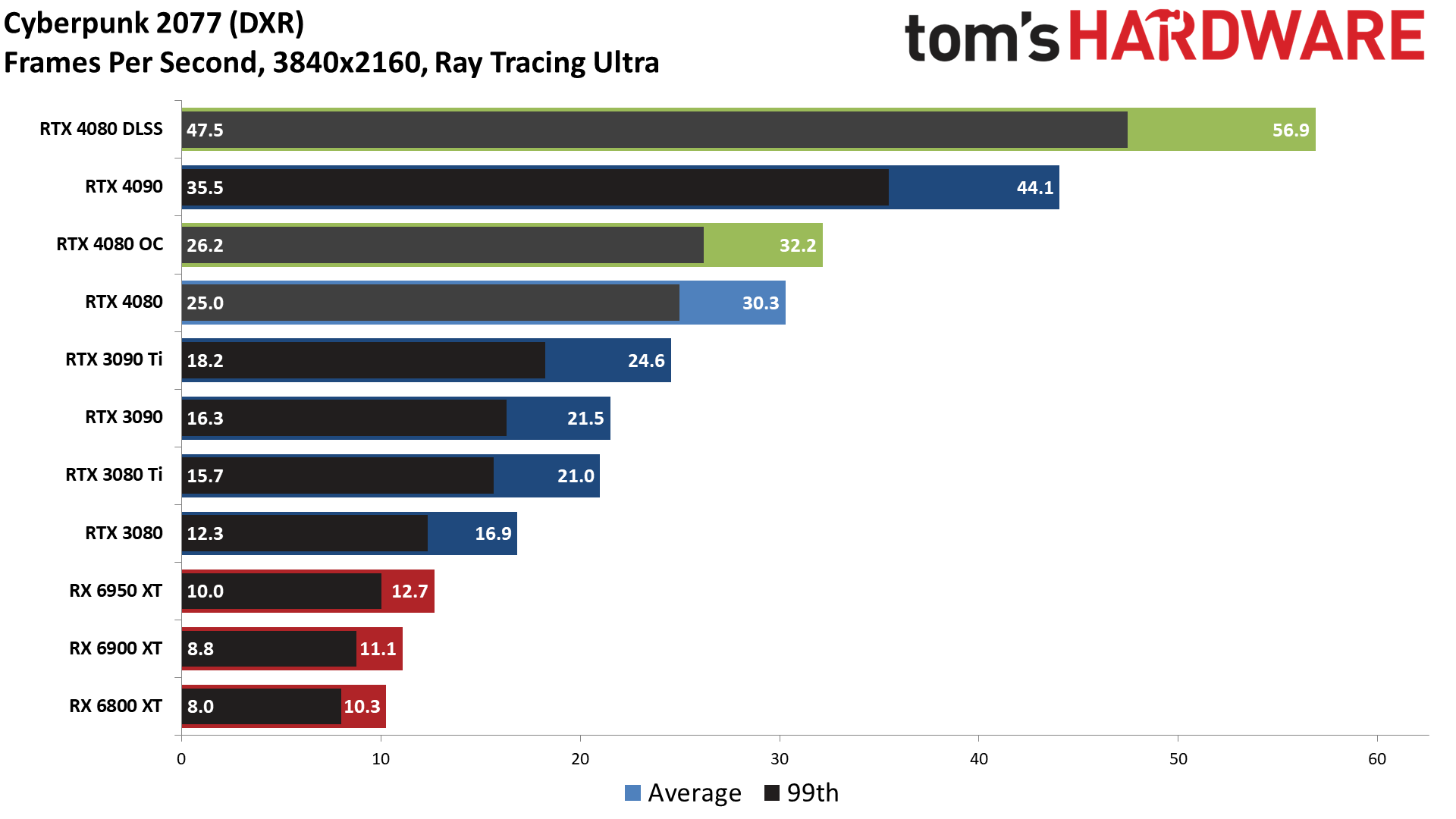
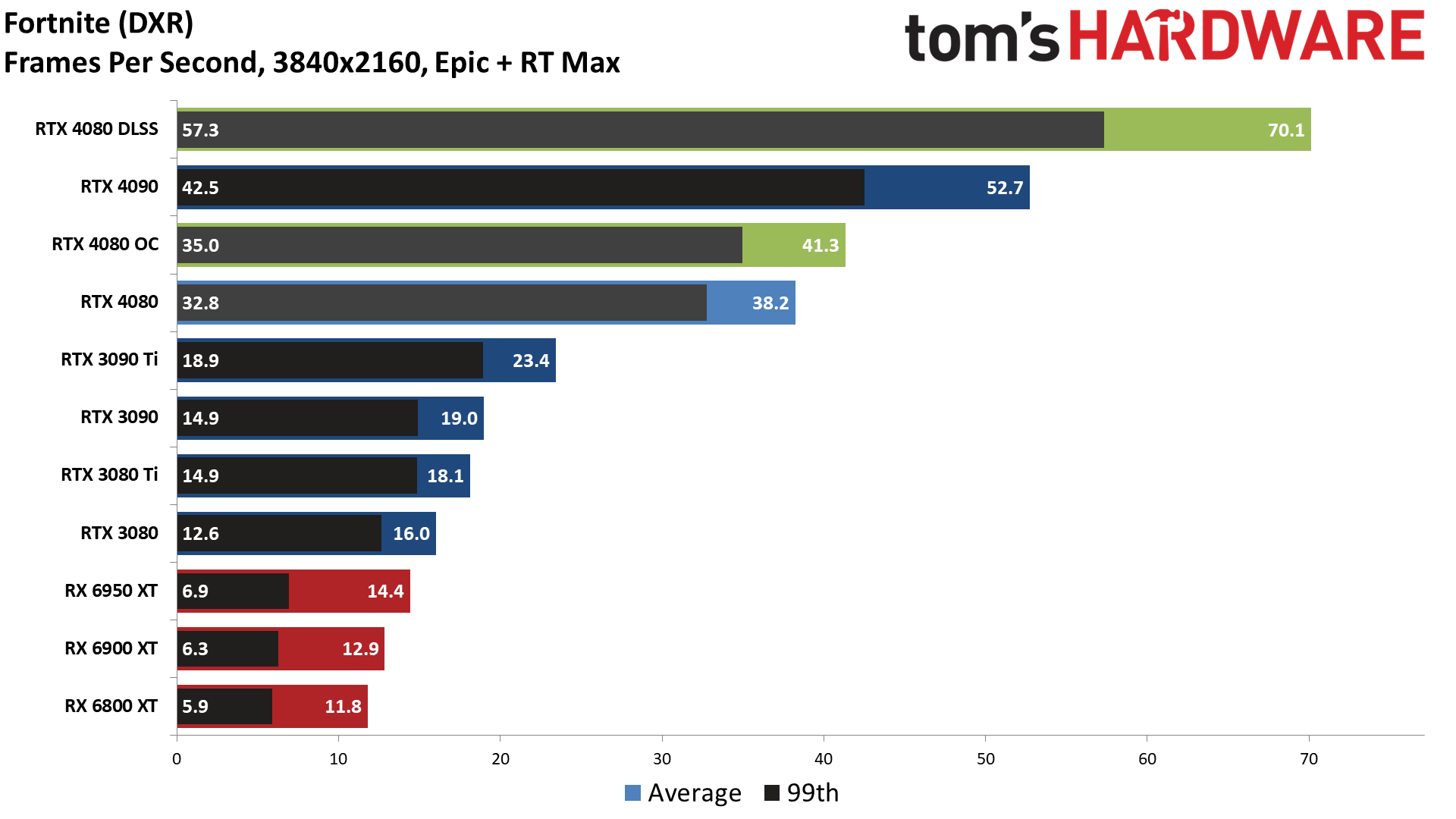
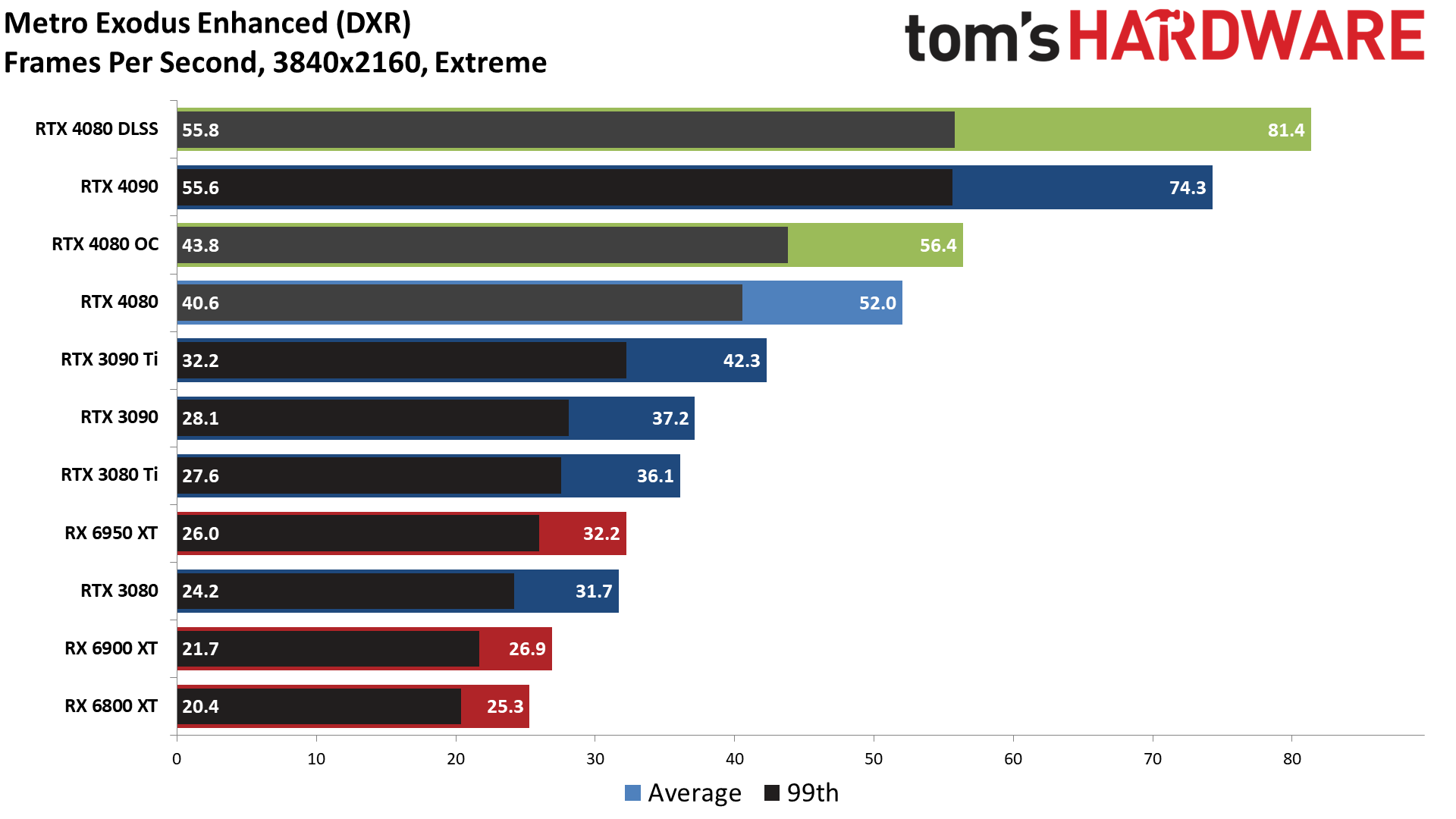
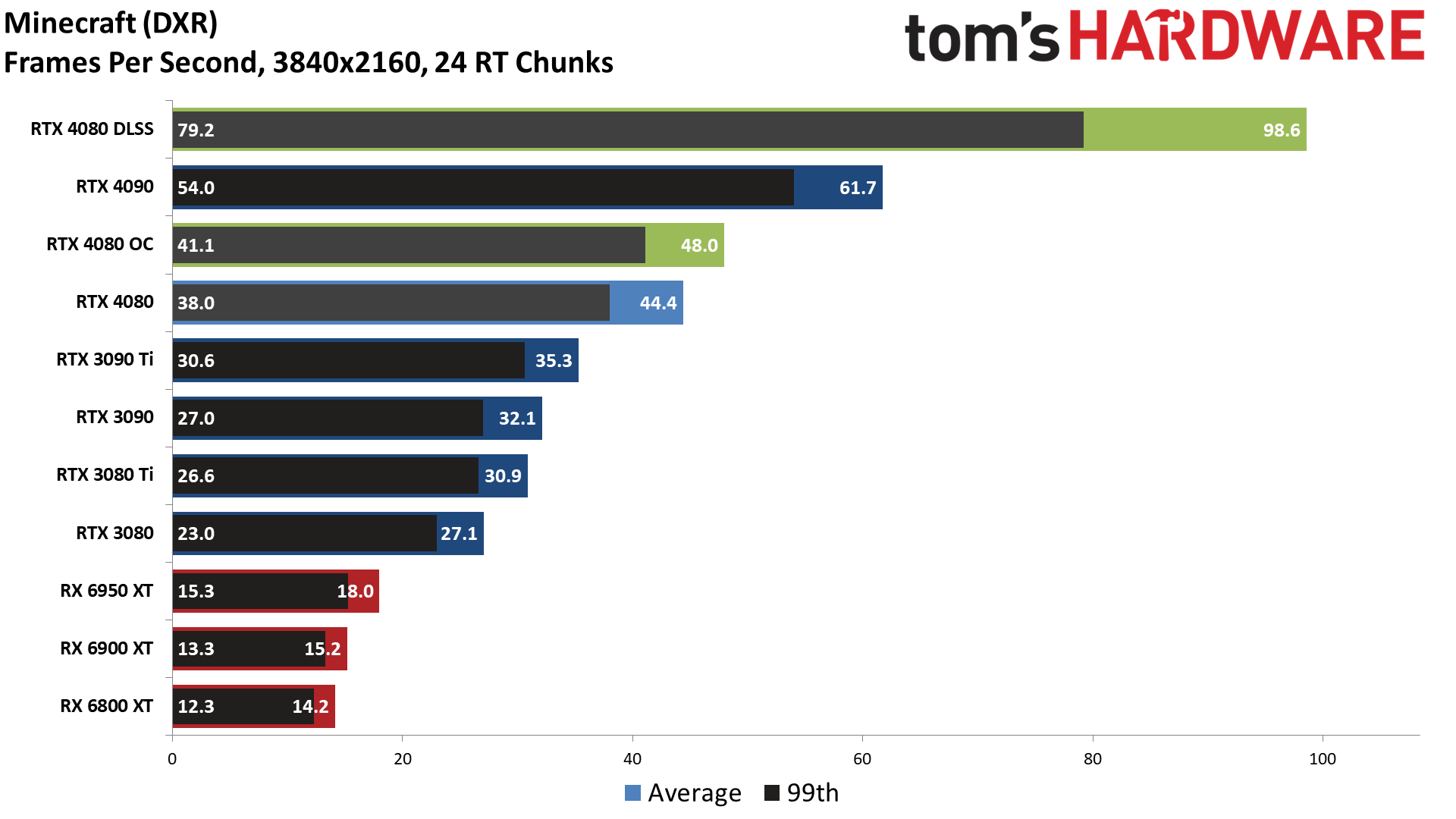
Our ray tracing test suite proves far more demanding, fully eliminating any CPU bottlenecks at 4K — and in fact, some of the results are barely playable. Overall, the RTX 4080 delivers 26% more performance than the 3090 Ti, is 48% faster than the 3080 Ti, 72% faster than the 3080, and just over twice as fast as AMD's RX 6950 XT.
All six games support DLSS, and that tacks on another 89% using Quality mode — that doesn't include Minecraft, which automatically applies Performance mode at 4K. Overclocking still doesn't do much, providing a 7.4% bump in framerates.
While most of the games are technically still playable, the RTX 4080 really needs some form of upscaling — or alternatively, DLSS 3's Frame Generation — to deliver smooth framerates with maxed-out ray tracing settings at 4K. These results also show how much the Ada Lovelace architecture has improved Nvidia's RT performance, yet again keeping a wide gap between the Nvidia and AMD GPUs, though we'll have to see how RDNA 3 fares next month.
- MORE: Best Graphics Cards
- MORE: GPU Benchmarks and Hierarchy
- MORE: All Graphics Content
Get Tom's Hardware's best news and in-depth reviews, straight to your inbox.
Current page: GeForce RTX 4080: 4K Gaming Performance
Prev Page Nvidia RTX 4080 Overclocking and Test Setup Next Page GeForce RTX 4080: 1440p Gaming Performance
Jarred Walton is a senior editor at Tom's Hardware focusing on everything GPU. He has been working as a tech journalist since 2004, writing for AnandTech, Maximum PC, and PC Gamer. From the first S3 Virge '3D decelerators' to today's GPUs, Jarred keeps up with all the latest graphics trends and is the one to ask about game performance.
-
btmedic04 At $1200, this card should be DOA on the market. However people will still buy them all up because of mind share. Realistically, this should be an $800-$900 gpu.Reply -
Wisecracker ReplyNvidia GPUs also tend to be heavily favored by professional users
mmmmMehhhhh . . . .Vegas GPU compute on line one . . .
AMD's new Radeon Pro driver makes Radeon Pro W6800 faster than Nvidia's RTX A5000.
My CAD does OpenGL, too
AMD Rearchitects OpenGL Driver for a 72% Performance Uplift : Read more
:homer: -
saunupe1911 People flocked to the 4090 as it's a monster but it would be entirely stupid to grab this card while the high end 3000s series exist along with the 4090.Reply
A 3080 and up will run everything at 2K...and with high refresh rates with DLSS.
Go big or go home and let this GPU sit! Force Nvidia's hand to lower prices.
You can't have 2 halo products when there's no demand and the previous gen still exist. -
Math Geek they'll cry foul, grumble about the price and even blame retailers for the high price. but only while sitting in line to buy one.......Reply
man how i wish folks could just get a grip on themselves and let these just sit on shelves for a couple months while Nvidia gets a much needed reality check. but alas they'll sell out in minutes just like always sigh -
chalabam Unfortunately the new batch of games is so politized that it makes buying a GPU a bad investment.Reply
Even when they have the best graphics ever, the gameplay is not worth it. -
gburke I am one who likes to have the best to push games to the limit. And I'm usually pretty good about staying on top of current hardware. I can definitely afford it. I "clamored" to get a 3080 at launch and was lucky enough to get one at market value beating out the dreadful scalpers. But makes no sense this time to upgrade over lest gen just for gaming. So I am sitting this one out. I would be curious to know how many others out there like me who doesn't see the real benefit to this new generation hardware for gaming. Honestly, 60fps at 4K on almost all my games is great for me. Not really interested in going above that.Reply -
PlaneInTheSky Seeing how much wattage these GPU use in a loop is interesting, but it still tells me nothing regarding real-life cost.Reply
Cloud gaming suddenly looks more attractive when I realize I won't need to pay to run a GPU at 300 watt.
The running cost of GPU should now be part of reviews imo.
Considering how much people in Europe, Japan, and South East Asia are now paying for electricity and how much these new GPU consume.
Household appliances with similar power usage, usually have their running cost discussed in reviews. -
BaRoMeTrIc Reply
High end RTX cards have become status symbols amongst gamers.Math Geek said:they'll cry foul, grumble about the price and even blame retailers for the high price. but only while sitting in line to buy one.......
man how i wish folks could just get a grip on themselves and let these just sit on shelves for a couple months while Nvidia gets a much needed reality check. but alas they'll sell out in minutes just like always sigh -
sizzling I’d like to see a performance per £/€/$ comparison between generations. Normally you would expect this to improve from one generation to the next but I am not seeing it. I bought my mid range 3080 at launch for £754. Seeing these are going to cost £1100-£1200 the performance per £/€/$ seems about flat on last generation. Yeah great, I can get 40-60% more performance for 50% more cost. Fairly disappointing for a new generation card. Look back at how the 3070 & 3080 smashed the performance per £/€/$ compared to a 2080Ti.Reply
